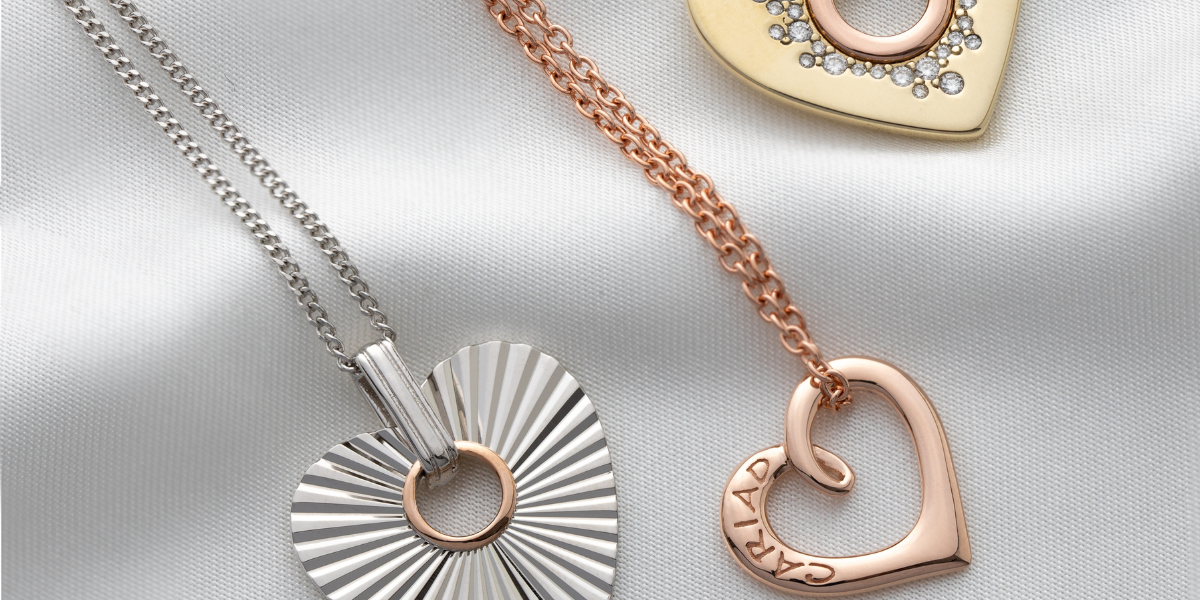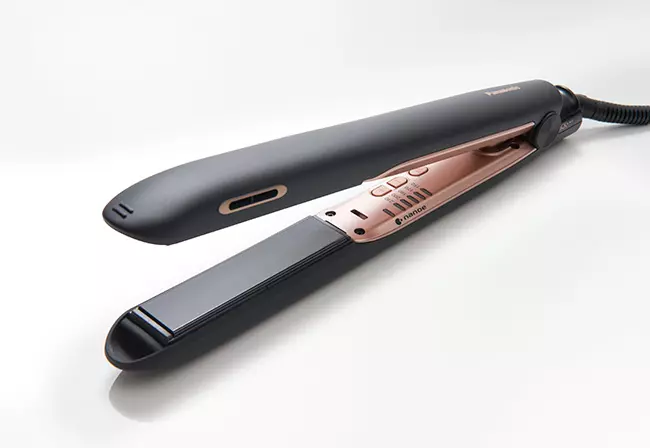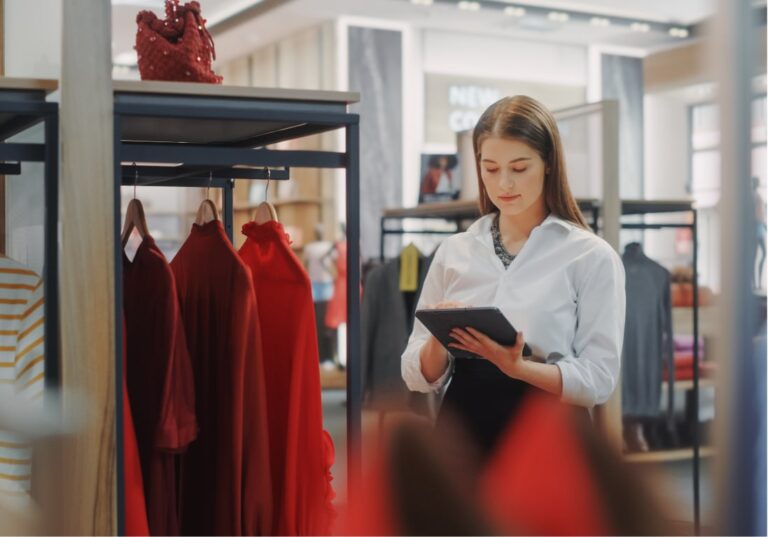The saying “all dressed up with nowhere to go” seems like a pretty apt description of the American public right now.
With mask mandates and other COVID-19 restrictions falling away, more Americans are heading out to shop. In-store purchases of clothing and accessories are up nearly 22% from a year ago, according to an estimate by the Commerce Department.
While a lot of extracurriculars like concerts and travel are still on pause, people are buying more clothes at this stage of the pandemic. That leaves small businesses trying to nail down exactly what people want to buy and where.
Mary Bergstrom has been renovating her house in Brooklyn, and she’s bought a toilet, lights and sage to burn. “Oh yeah, to get all the juju out. For real.”
Now that the essentials are taken care of, she’s ready to buy things just for pleasure.
“I’ve been doing a lot of shopping online, but it’s not super satisfying. It’s nice to be able to just go into a shop and see what there is and feel things and see them in real life,” she said.
That brought her to this shop, called Jill Lindsey. It’s named for its owner, who opened the store eight years ago and wanted it to be a lot of things: Customers can buy some wine or tea along with a candle or a dress. They even have events, like kids’ singalongs.
One of the best-selling pieces of clothing this winter is an oversized cream sweater made of recycled wool. Lindsey said it originally cost $268; it’s now on sale for $188.
“It’s like an aspirational piece, like this kind of knitwear is kind of antique looking. It makes you feel safe,” Lindsey said. “It’s not aggressive.”
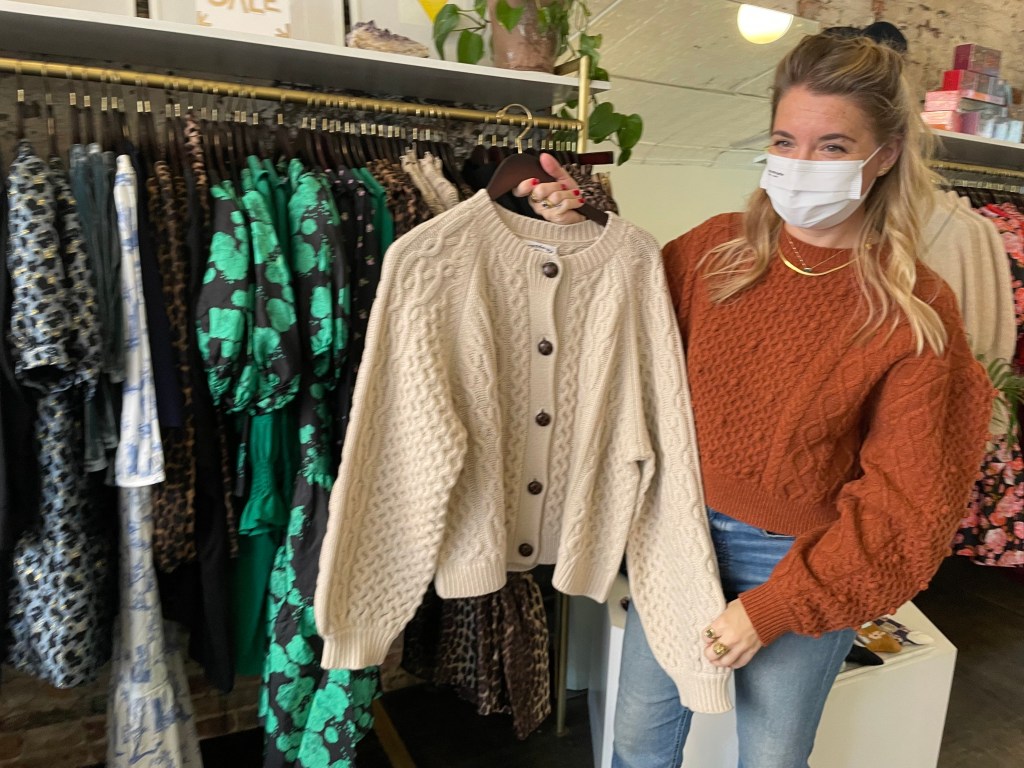
That desire to feel a certain way has been motivating customers everywhere.
“So I do think there’s a lot of emotional buying going on now,” said Natalie Kotlyar, who follows retail trends for the advisory firm BDO. “It’s the need to purchase something that will make them uplifting, that will make them feel better.”
There’s an emotional need and there’s also the actual need, said economist Aditya Bhave with Bank of America.
“There were all these sales that were lost in 2020. We still need to wear clothes,” he said.
Small businesses stand to benefit if they made it through the pandemic, Bhave said.
Jill Lindsey said she got two federal loans totaling $86,000 to get her through. Since she’s kept her space open, she wants people to linger in it again.
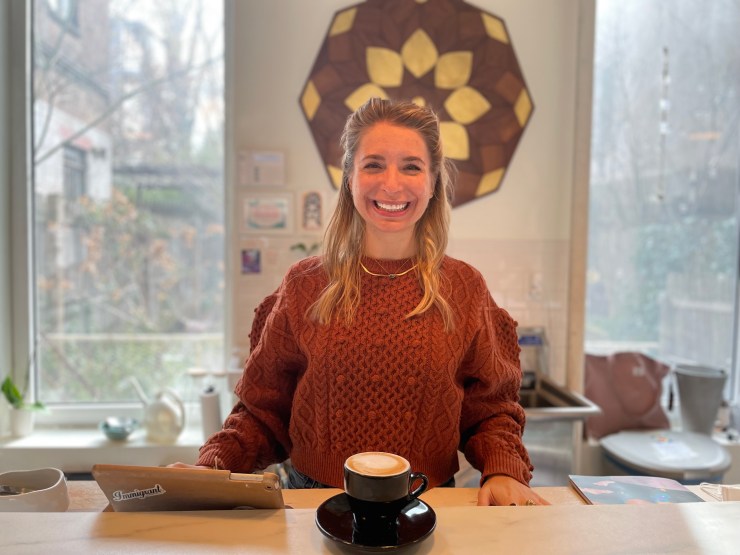
“Now it’s like, ‘Come in and go.’ Like, there’s less of the hangout,” she said.
If she’s going to compete with big retailers like Anthropologie and J. Crew, Lindsey said people need to hang out — and, you know, buy that sweater.

